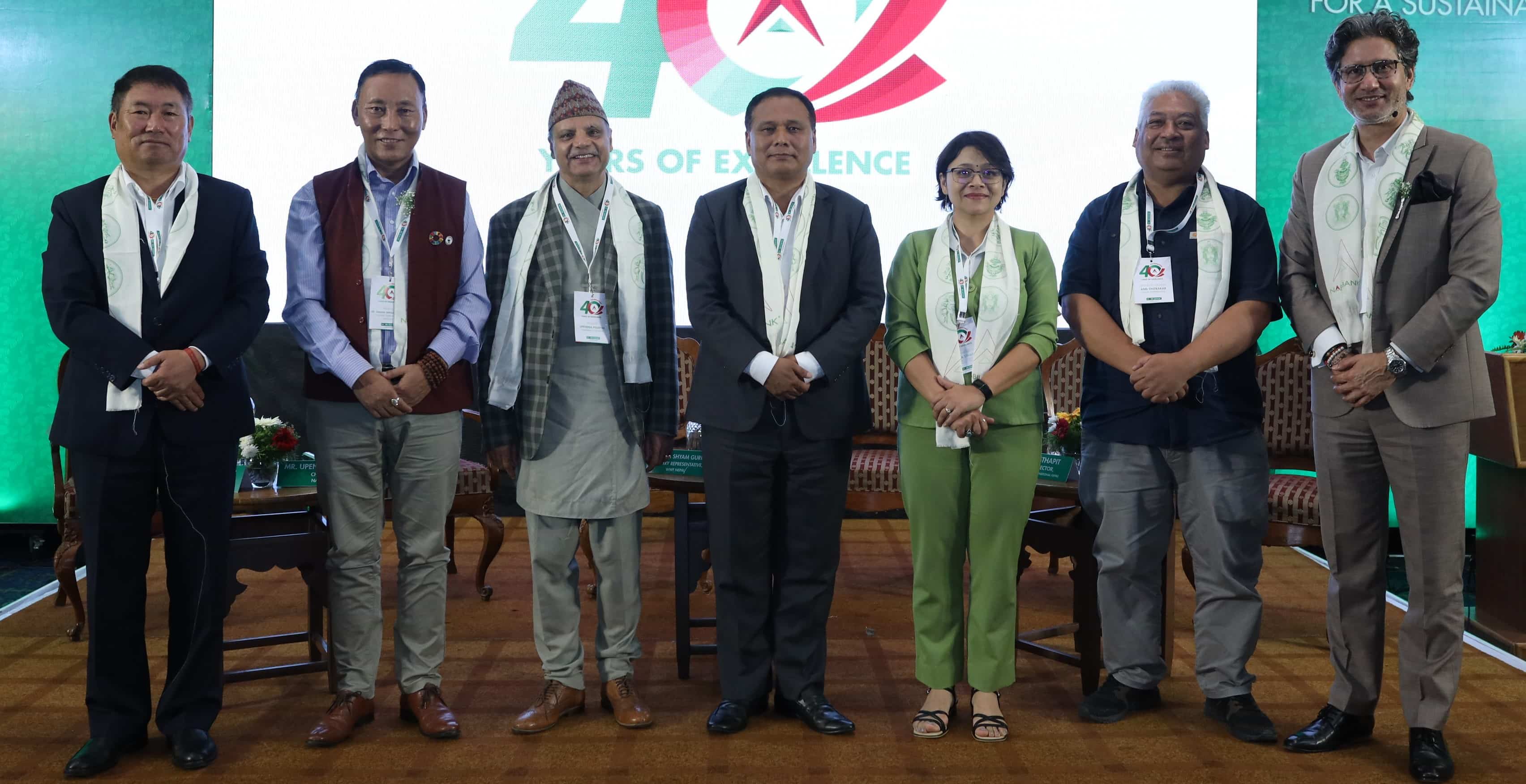Nabil Bank celebrated its 40th anniversary and extended its commitment to a sustainable future on Friday amid an event in Kathmandu. Coinciding with the anniversary, the bank plans to provide customers more opportunities and facilities. “In this regard, we have begun implementing a sustainable banking system to reduce emissions, invest in renewable energies and to promote socio-economic development,” said Gyanendra Dhungana, CEO of the Bank.
He expressed gratitude to the clients, employees, investors and others working to sustain long-lasting relationships. “The bank has focused on specific development to provide service through technology.”
Chairperson of Nabil Bank, Upendra Prashad Paudyal; Managing Director of Nepal Electricity Authority, Kul Man Ghising; Country Representative of WWF Nepal, Ghana Shyam Gurung; Director-General of ICIMOD, Pema Gyamtsho; and National Director of Habitat for Humanity International Nepal, Eliza Sthapit, were among the attendees.
According to Hanaa Singer-Hamdy, coordinator of the UN Resident in Nepal, “Banks can empower individuals and small businesses, promote ecotourism, and support digital transformation by promoting the use of digital finance and inter probability where the digital transformation is needed to access all the digital services by investing in digital infrastructure.” Since its inception, the bank has always provided technology-based services, claims the Bank. “More than 60 services are currently available via mobile.” The event also featured a panel discussion.
Beginning the Q&A session with the panelists, journalist Bhusan Pathak expressed gratitude to Nabil Bank for the opportunity and offered kind wishes to each and every participant and stakeholder. The purpose of the session was to learn more about their motivation for collaborating and about more about new planning. Nabil Bank’s Chairperson Paudyal said they aim to provide training for new entrepreneurs, adding: Our sustainable banking initiative is meant to provide long-term service and not short-term profit. Since 2018, we have additionally established an environmental risk management system, and much progress has been accomplished.”
“The banking sector has a tremendous opportunity as it converts to sustainability. The bank needs to beware and invest in hydropower and linear infrastructure development, which is linked worldwide,” said Gurung, recognized as the WWF Network’s Snow Leopard Champion. Sthapit shared her thoughts on relationship building, interrelation and partnership with Nabil.
Gyamtsho addressed water management and air pollution, saying, “Investing in and conserving hydroelectricity for people in need can help ensure sustainability. To combat air pollution, one must be able to invest in electric vehicles in Kathmandu’s most polluted areas. He added, “This brings out a huge opportunity for a bank to look forward to sustainability.”
According to Ghising, sustainability is crucial for social and economic as well as environmental reasons. “EVs are now operating in rural areas of Nepal also, and this transformation has been made possible by a reliable supply of hydropower,” he continued. “Demand and investment in induction EV charging stations are also crucial. Our electricity export now surpasses imports,” he said, calling for stronger commitments on the part of the government on the development front.
Nabil Bank has been providing services through 22 extension counters and 316 ATM machines with a network of 268 branches across the country, serving more than 2.2m customers through direct banking services.











